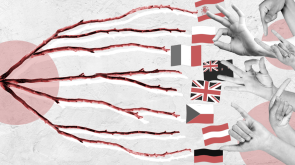
Short-term reward experience biases inference despite dissociable neural correlates
In a study published on November 22 in Nature Communications, Adrian Fischer, Markus Ullsperger from the Otto-von-Guericke University in Magdeburg and Sacha Bourgeois- Gironde (IJN, ENS, Paris) demonstrate that short-term reward experience biases our estimates of what is good or bad in the long-term – despite knowing that these short-term experiences are irrelevant to the long-term outcome.
Humans generally try to make good decisions. Sometimes, these decisions are based on experience, but sometimes we have to rely on abstract information because we have not experienced the long-term consequences of a decision before. For example, many people try to avoid fast-food, yet not because they have experienced weight-gain after eating, but because of information provided about its negative long-term consequences. In a recent study published in Nature Communications, Fischer and Ullsperger from the Otto-von-Guericke University in Magdeburg and Bourgeois- Gironde from Ecole Normale Supérieure in Paris demonstrate that short-term reward experience biases our estimates of what is good or bad in the long-term – despite knowing that these short-term experiences are irrelevant to the long-term outcome. A positive experience, for example the taste of fast-food, makes us believe that this decision is better even on the long-term, despite knowing that this is not the case. Using functional magnetic resonance imaging, the researchers additionally found out that that short-term experience and long-term information are processed in separate regions of the human brain. However, they found overlapping processing in the medial striatum , an evolutionary old structure that controls and selects actions, and the frontal cortex, a brain region closely associated with higher cognitive functions and behavioural control. Surprisingly, especially participants of the study that were best able to estimate the true long-term consequences of decisions, showed a stronger influence of short-term experiences on the activity of control regions in the brain and those regions that showed overlapping activity. This suggests that in order to make optimal decisions in the long-term, it is better to intensively reflect upon one's own immediate rewarding experiences rather than trying to ignore them.
- Adrian G. Fischer , Sacha Bourgeois-Gironde & Markus Ullsperger (2017) Short-term reward experience biases inference despite dissociable neural correlates, Nature Communication, 1690, doi:10.1038/s41467-017-01703-0
- En savoir plus sur Sacha Bourgeois-Gironde
- En savoir plus sur Adrian Fischer
- En savoir plus sur Markus Ullsperger



